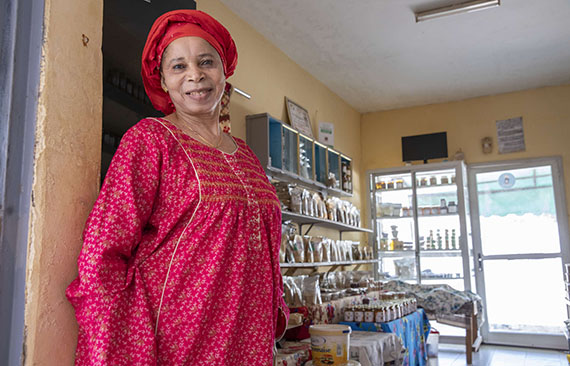|
Senegal is thousands of miles from the Russia-Ukraine border. Yet, people here are impacted by the ongoing war every day. Before 2020, many countries in Africa relied on Ukrainian and Russian exports, with over 50 percent of fifteen African countries’ imports of wheat, including Senegal’s, coming from Ukraine and over 20 percent Senegal’s oil coming from Russia. Meet Iysatu — an independent businesswoman in Senegal who has felt the ramifications of the Russia-Ukraine war. For more than 20 years, she’s made cereals, juices, jams, and other food products. But recently, Iysatu’s electricity bill became nearly unmanageable. "All our income was going towards the electricity bill each month," she says. "We were just working out of passion, but [the business] was no longer lucrative."

Iysatu’s shop in Senegal is thriving after Mercy Corps installed solar panels, cutting her electricity bill by more than half.
Heat waves and decreased rainfall have threatened Senegal’s food security and economic growth, compounding the ripple effects of the war. Mercy Corps is partnering with communities to install solar panels to provide a consistent source of energy and save money. Watch a message from one of our team members on the ground about the solar installation.
As violent conflict and harsher climate conditions create shortages, the new solar panels are helping communities become more resilient and self-sufficient. They’re providing more electricity for everyday needs, powering water pumps to yield more crops, and helping businesses flourish. With the support of our generous community, Mercy Corps continues to work to help families in 40+ countries cope, adapt, and thrive in the face of conflict and climate change. Sincerely, The Mercy Corps team |

|
|||||||||||